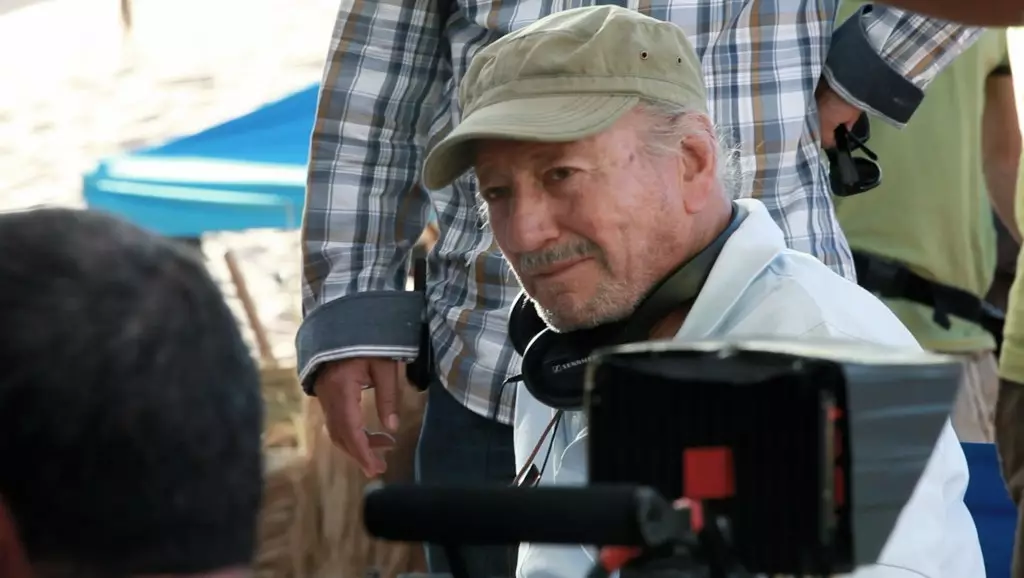The film industry often serves as a mirror reflecting the societal norms and struggles of its time. Few filmmakers have managed to embody the spirit of their nation’s history with the same resonance as Algerian director Mohammed Lakhdar-Hamina. The celebrated creator of *Chronicles of the Years of Fire*, which remains the sole film from Africa to clinch the prestigious Palme d’Or at the Cannes Film Festival, passed away at the ripe age of 91 on May 23. His demise not only marks the loss of a cinematic trailblazer but also signifies a void in the representation of African narratives within international cinema.
The timing of his death was steeped in poetic irony; the Cannes Film Festival celebrated the 50th anniversary of his monumental achievement on the very day he departed, screening *Chronicles of the Years of Fire* amid a wave of nostalgia and recognition. This film, encapsulating the agony and resilience of Algerians during the War of Independence, has established Lakhdar-Hamina as a vital voice in cinema, illustrating narratives rooted in colonial struggle and the quest for identity.
More Than Just a Director
Born in 1934 in M’sila, Algeria, Lakhdar-Hamina’s early life was shaped by the socio-political turbulence surrounding him. His experiences during the War of Independence, particularly the tragic loss of his father to French forces, galvanized his artistic expression. Rather than merely chronicling events, Lakhdar-Hamina sought to resonate emotionally with audiences, giving them insight into the challenges faced by ordinary people amidst turmoil. His first short films were products of a profound understanding of conflict’s multifaceted nature, where the personal and political intersect.
His filmography is impressive not just for its critical acclaim but for its cultural significance. Competing at Cannes on four separate occasions, Lakhdar-Hamina has been part of a crucial dialogue about the representation of African stories on the global stage during times when diversity was seldom celebrated. His films, including *The Winds of the Aures* and *Sandstorm*, challenged conventional storytelling and provided marginalized voices an opportunity to shine.
Beyond Filmmaking: A Leader and Visionary
Lakhdar-Hamina’s influence extended beyond the silver screen. He played an essential role in shaping Algeria’s media landscape post-independence. As head of the Office des Actualités Algériennes for over a decade, he wielded the power of storytelling through journalism, thus actively participating in the nation-building process. His directorship at Algeria’s National Office for Commerce and the Film Industry highlighted his commitment to fostering the cinematic arts within his homeland, facilitating growth, and pushing for narratives that resonate with the Algerian experience.
The project to restore *Chronicles of the Years of Fire* to 4K, undertaken by The Film Foundation’s World Cinema Project, underscores how his work continues to inspire future generations. Funded by organizations keen on preserving the essence of African cinema, Lakhdar-Hamina’s film not only serves as historical documentation but also reflects the artistic richness of a continent often underrepresented in global discourse.
Yesterday’s Art, Tomorrow’s Inspiration
Mohammed Lakhdar-Hamina’s legacy serves as an imperative reminder of cinema’s power to enact change. As we look upon the global film landscape today, there is an ongoing need for authentic narratives that encapsulate the complexities of human experience, especially in contexts like Algeria’s, where history and culture are deeply intertwined. Though he has left this world, his films remain a testament to his talent, paving the way for future filmmakers to showcase their stories with equal fervor and authenticity.
The upcoming re-release of *Chronicles of the Years of Fire* in France this August offers not just a nostalgic look back at a classic but an opportunity for audiences to engage anew with the intricacies of colonial legacies and independence. In a world that is continually evolving, Lakhdar-Hamina’s incisive storytelling is more relevant than ever, reminding us that the power of narrative can indeed inform not just our understanding of the past but also shape the future of filmmaking.

